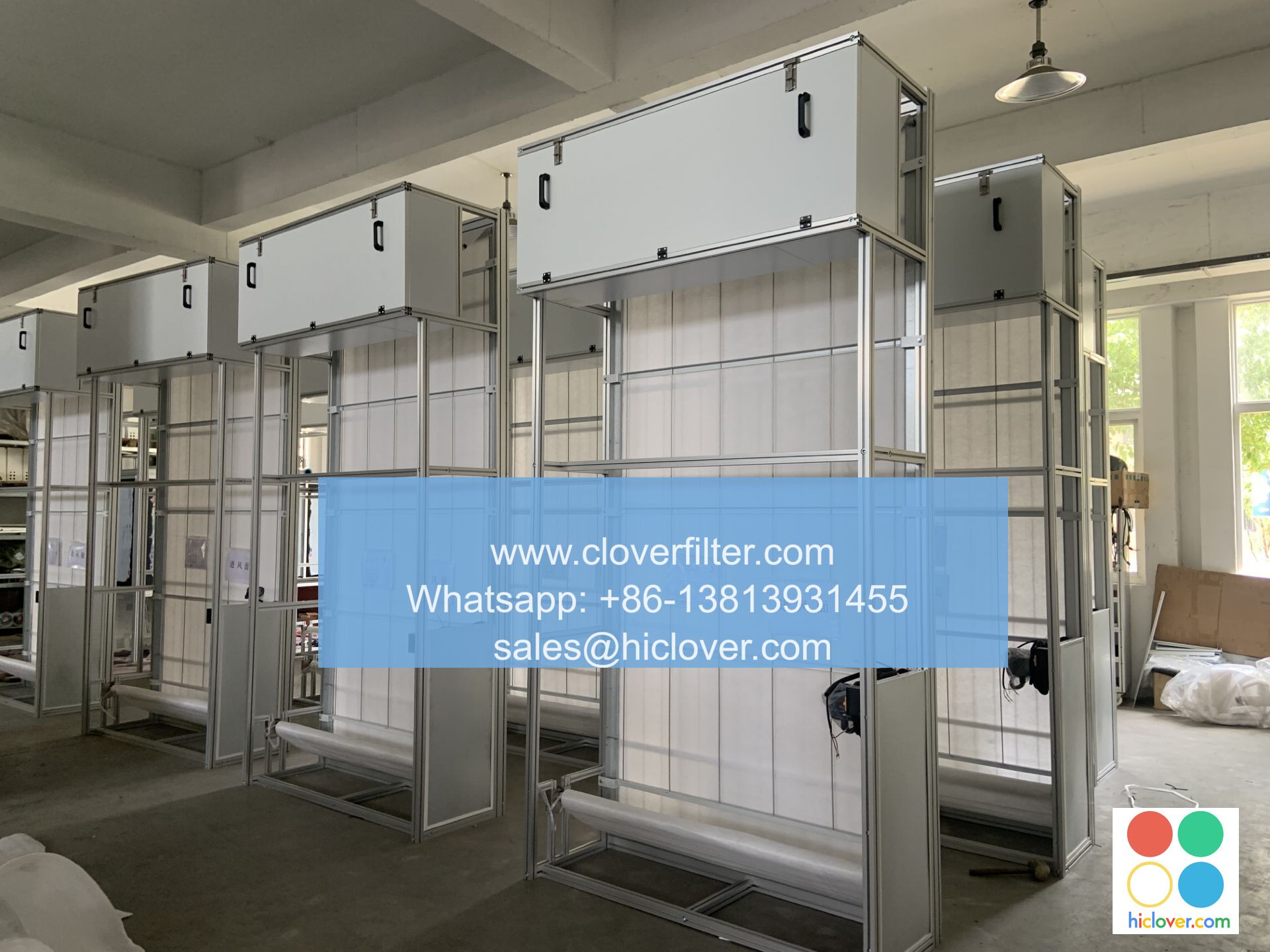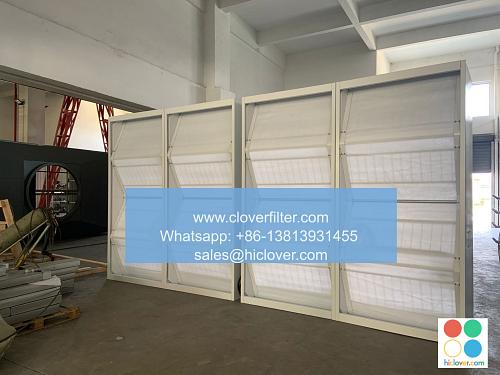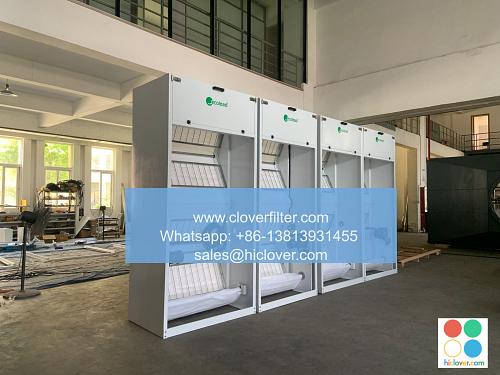Guelph Food Researchers Benefit from Improved Air Quality with Automatic Roll Air Filters

The city of Guelph, known for its vibrant community and strong sense of environmental responsibility, has been making strides in improving its air quality. One significant development that has benefited the local food research community is the adoption of automatic roll air filters. These innovative systems have been installed in various research facilities and laboratories, providing a cleaner and healthier environment for scientists and researchers to work in.
The University of Guelph, a leading institution in food research, has been at the forefront of this initiative. By incorporating automatic roll air filters into their facilities, they have significantly reduced the levels of airborne contaminants, such as dust, pollen, and other particles. This has resulted in a marked improvement in indoor air quality, creating a better working environment for researchers and staff. The benefits of this technology are twofold: not only does it promote a healthier workspace, but it also enhances the accuracy and reliability of research findings.
Food researchers in Guelph have been quick to embrace this technology, recognizing the importance of maintaining a clean and controlled environment in their laboratories. The automatic roll air filters have proven to be particularly effective in reducing the presence of airborne particles, which can contaminate samples and compromise the integrity of experiments. By minimizing these risks, researchers can focus on their work with greater confidence, knowing that their results are accurate and reliable.
In addition to the benefits for research, the improved air quality has also had a positive impact on the health and wellbeing of staff and students. Reduced exposure to airborne contaminants has led to a decrease in respiratory problems and other health issues, creating a more comfortable and productive working environment. This, in turn, has contributed to increased job satisfaction and reduced absenteeism, ultimately benefiting the entire research community.
The adoption of automatic roll air filters in Guelph’s food research facilities has also had economic benefits. By reducing the need for frequent filter replacements and minimizing downtime, these systems have helped to lower maintenance costs and optimize resource allocation. Furthermore, the improved air quality has extended the lifespan of equipment and reduced the risk of damage, resulting in significant cost savings over time.
The city of Guelph’s commitment to improving air quality has also had a positive impact on the local community. As a hub for food research and innovation, the city attracts businesses, investors, and talent from across the country. The improved air quality has enhanced Guelph’s reputation as a desirable location for companies and individuals involved in the food industry, contributing to the city’s economic growth and development.
In conclusion, the introduction of automatic roll air filters in Guelph’s food research facilities has been a resounding success. The improved air quality has created a healthier and more productive working environment, enhanced the accuracy and reliability of research findings, and contributed to the city’s economic growth and development. As the city continues to prioritize environmental sustainability and innovation, it is likely that we will see even more exciting developments in the field of air quality management.
Conclusion
The adoption of automatic roll air filters in Guelph’s food research facilities is a testament to the city’s commitment to innovation and environmental sustainability. By prioritizing air quality, the city has created a better working environment for researchers, improved the accuracy and reliability of research findings, and contributed to its economic growth and development. As we look to the future, it will be exciting to see how this technology continues to evolve and benefit the food research community in Guelph and beyond.
FAQs
Q: What are automatic roll air filters, and how do they work?
A: Automatic roll air filters are innovative systems that use a rolling filter media to capture airborne contaminants, such as dust, pollen, and other particles. They are designed to provide a continuous supply of clean air, minimizing the need for frequent filter replacements and downtime.
Q: What are the benefits of improved air quality in food research facilities?
A: Improved air quality in food research facilities has numerous benefits, including enhanced accuracy and reliability of research findings, reduced risk of contamination, and a healthier and more productive working environment for staff and students.
Q: How have automatic roll air filters contributed to the economic growth and development of Guelph?
A: The adoption of automatic roll air filters in Guelph’s food research facilities has contributed to the city’s economic growth and development by attracting businesses, investors, and talent from across the country, enhancing the city’s reputation as a desirable location for companies and individuals involved in the food industry.
Q: What are the potential applications of automatic roll air filters beyond food research facilities?
A: The potential applications of automatic roll air filters extend far beyond food research facilities, including industries such as healthcare, pharmaceuticals, and manufacturing, where clean air is essential for product quality and worker safety.


